It is a judgement call when deciding what is the perfect diamond engagement ring, but for a lot of ring buyers, luck will dictate what they end up with.
Starting with a few facts:
- About 75% of the engagement rings sold in the UK this year will be set with a diamond.
- The average cost of the engagement ring is about £1,500
- The diamond is the largest proportion of the ring value.
- And for the majority of individuals who are looking for the best diamond engagement ring out there, it is the biggest source of stress and headaches!
What is the perfect diamond for an engagement ring?
The aim of the engagement ring is a bit like a love letter, it declares that the giver would like to spend the rest of their life with the recipient. But when you are the giver, it does become a metaphor for so many things! And sometimes finding it is too traumatic to feel good about. Quite often it is that pesky ‘perfect diamond’ which is a key source of the angst. Too small, you are worried you won’t impress her. Too big, you may be compromising on quality or pushing your bank balance harder than you feel comfortable with.
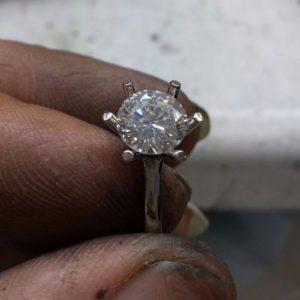
The closer you get to the magic ‘D’ colour, the more the price seems to jump. The cheaper the stone, the less charismatic it may look in any light bar a direct halogen. And through all these considerations you are suffering from Data Overload. Really the internet has a lot to answer for!
There is an excess of information out there on how to be able to identify the perfect diamond. A lot of it culminates in a ‘helpful site’ to buy these stones from. The challenge is that there aren’t any live stones to look at, only images or stone reports. The rest is up to your judgement – the assumption being in a lot of the advice advice given that it is actually very easy to become an expert..
As with so many things in life, the only areas of expertise you might be able to cultivate just by ‘reading about it’ would be the complete works of Shakespeare, Jane Austin or Charles Dickens. If you were about to be operated on by a surgeon who had just spent a few weeks reading on how to carry out the operation, you would have every right to run out of the theatre clutching your embarrassing NHS gown closed at the rear..
Most high value purchases we make, we also carefully vet. It is interesting that with the engagement ring, we’ll take it more on trust, but what else do we have? We know our limitations in understanding diamonds and jewellery, for 99% of us this is not an everyday casual purchase. We want online sites to help us, we want to be right and save money at the same time. And we're a bit embarrassed that we want to save money as we want to be perceived as being generous.
You can spot a good diamond easily, provided you have either good or bad stones to benchmark your target stone against. The reality of which isn’t an option for most of us. Instead, we rely on a number of influencing factors, which is a mainly a good thing. But; we aren’t always objective which means these factors can also hinder us. Which I’ll discuss now.
How do we choose the perfect diamond for every client? Find out how we tackled three budgets here.
The double edged sword of diamond buying information
Four key areas which are also a hindrance when you are looking for the best diamond to buy
I’ve written about all these points before. This article differs slightly as I’ve looked at the risks of over-reliance on each.
1. What it says on the certificate
A diamond certificate is useful as an appraisal of the stone. But it is just an appraisal, not a declaration. Suppose you have a round brilliant 0.50ct Gvs2 triple excellent GIA certified diamond.
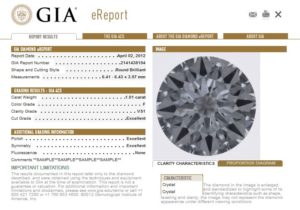
You also have a 0.50ct Esi1 GIA which is very good to excellent. You know that the cut is going to dictate the sparkle best, then clarity so the G colour stone is going to be the winner, right? Side by side, in this case no. They were equally sparkly. Additionally, the E had the added advantage of looking slightly larger than the G. And being £400 less. I’d recommended it as the best stone for the client brief.
However the certificate addled things. Client was adamant he could see the inclusions in the E, (he couldn’t) and there was a difference in sparkle. He chose the G. This meant he went over budget on his ring which he was slightly stressed about. He gained a stone which looked better – on paper. Value-wise, he wasn’t getting a discount on the E, it was a beautiful stone, (and slightly prettier), which is what drives a diamond’s value. He had a stunning ring, but genuinely wouldn’t have noticed any difference with the lower cost stone if it had been set. We don’t recommend average diamonds. The GIA appraisal was a distraction.
2. The brand you are buying from is the brand you are paying for
If you have bought a ring from a world renowned diamond brand, then it must trump all other stones out there. It would not be worth the risk to reputation otherwise, right? Well, kind of. Big international brands definitely take a lot more time and care with their diamonds. But the premium is for the brand above the stone. You will have a lovely stone for sure. Will it quite match up to all the hype and pictures of people looking at stones through loupes on their site? It depends how big a premium you’ve paid for it. Go have a look what these renowned rings are selling for on Ebay or if they are selling, and you'll get an idea how prized the diamonds are
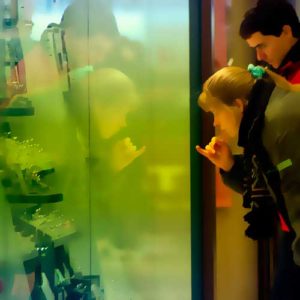
Take it down a notch, and look at the premium diamond rings of some of the high street brands. It isn’t that they are bad stones, but when you look at specification on offer, it is the brand you are paying for. How else could you excuse an H-Isi1 stone as premium level?
3. The opinions of others are both valuable and misleading
Your friend went to ‘such and such’ and came back with the perfect ring and she is so happy now etc etc.. But did they have the same needs as you? They may be keen on you to buy from the same place. Your approval means that their decision to go there has been validated and the rings are good!
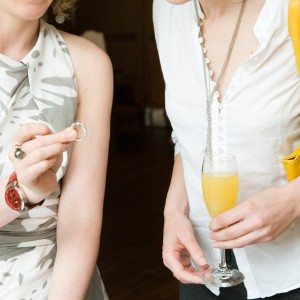
You may not be looking for ‘cheap’ even if you do want value. Alternately, you might not be seeking a brand as you don’t want to pay the premium. So it is just worth determining whether your needs are on the same page when you start out. That way you won’t waste time, or money.
4. Online guides and advice can be written by ANYONE
Some of the advice I see just baffles me. No, white gold is not purer than platinum. No, tanzanite is not a good stone to use in your engagement ring. No, you don’t have to spend three months salary on your engagement ring.
OK, we are guilty here, given we share advice about diamond buying on our site (have you seen our engagement ring buying guide yet?!). This is why we try to keep it simple. We aren’t for turning visitors into wannabe diamond brokers - back to my surgeon comment! Working through a list of criteria that you need serious training to get your head around is a waste of time. What is the point of looking at a stone under 20x magnification? No rational human being is going to do that when your fiancée is flaunting her ring. If a stone is clearly not symmetrical (and is supposed to be) or looks like a piece of glass, you will should pick up on it regardless as your eyes can see the irregularities. To be honest, decide if the stone looks sparkly out of the light and if it still looks really lovely, you are on to something good.
Stuff versus substance
All the above is still important. The consideration is how much weight you give to each of these areas. Just remember, the diamond 'certificate' is an APPRAISAL of the stone. It is a bit like a homebuyer survey, based on the opinion of a human being. Some are spot on, and others way off and some given to be 'safe'. Likewise, the best brands are known to be discerning with their stone choices, your best mate may well introduce you to the fantastic company he used for his engagement ring, and there is good, practical advice to be had on the ‘interweb’. It is just too much emphasis on one factor can cloud your judgement.
From good, to amazing, to perfect diamonds — it ain't what you know
Why is the stone blue? Because it is an ‘E’ colour, so nearly colourless. This means it picks up more of the background.
Even a jeweller needs to know who the best diamond suppliers are, so for the consumer this really is the key. If you haven’t found the right supplier in the first instance, then you are never going to get the best stone. Problem is, you don’t always realise this sometimes until your fiancée has worked it out!
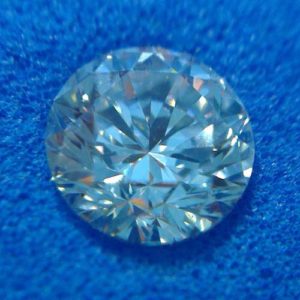
So, your search for the perfect diamond needs to unearth people who knows the right people. Good stones are judged by appearance and ethics. Everyone is aware of conflict diamonds, but then there are stolen diamonds too. A new problem is synthetic (man made) diamonds being sold into the mix. They are harder to test for, and equipment is expensive.
You may not mind having a diamond which was made in a laboratory, but you shouldn’t pay what the equivalent natural stone size would cost, because they are cheaper to produce. Plus, they don’t have the same intrinsic value. There are a lot of tricks that criminals deploy to try to get their stones into the supply chain and the toe curling tales of people who have lost a lot of money on sub standard diamonds.
Anyhow, find your diamond jeweller and then test what you know. Make sure you can view the stone. If there is supporting documentation you should be able to get a copy of this. What should you look for? Well, at Heirloom we are judging the stone on its shape, and how it performs, in a variety of lights. Keep this criteria in mind.
There are no shortcuts to a good diamond
There are lots of good diamonds to be found out there and people who will help you find something really special. But even in today’s internet age, there really are no short cuts. There are hundreds of thousands of stones listed online and you’ll get what you pay for. I don’t necessarily mean at store level. But diamonds are priced according to their quality, and a cheap online stone, is still a cheap online stone.
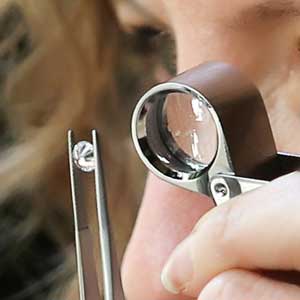
If you want to be able to buy diamonds like an expert, you have to train to be a diamond expert. Unsurprisingly, for that, you could have bought a very special engagement ring, and probably arranged a really nice break to have presented it on too, and got married!
My clients chose Heirloom as they wanted a trustworthy brand to go to. And beyond all the advertising (which we can’t afford!) find somebody who genuinely lives up to their promises. You want somebody who has this kind of feel for a diamond to help you, the stone is there to work in a piece of jewellery, not in a safe. Have a look out the notes on our stones available online and take inspiration from there. You might be a bit surprised at some of the certificates, but as I said, we want something that is going to look beautiful on the hand first, not a bit of paper!